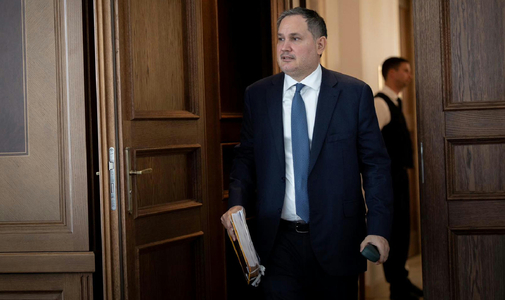Grass starts this moral race at an advantage. As far as we know, he was pushed into making his confession only by his conscience - he could have taken the secret of his time in the Waffen SS to the grave.
This contrasts with Istvan Szabo, who only confessed to acting as an informant after the press had found out.
This is the first, but not the only difference. Grass is ashamed of himself, and does not lay claim to any heroism, nor did he adopt the pose of a martyr, unlike the Oscar-winning director of Sunshine and Mephisto. I suspect also that Germany does not have the same whitewash brigades that emerged here when Szabo's past was revealed, whose members signed petitions and gave television interviews praising and pitying the film director as if it was he that had been the victim of an informant. Furthermore, Grass did nothing beyond simply donning the black uniform, whereas Szabo wrote reports about his classmates and friends. The reason for the differing reactons lies in the different attitudes found in Hungary and Germany and the dual standards that currently apply when talking about Nazism and Communism
But there are parallels between these two dramatic affairs. For example, both talk as if their main crime was not the act itself, but the fact that they kept it secret for so long. But why? Both were drawn into collaborating with an authoritarian regime at a very young age. Grass clearly cannot be proud of joining the SS's armed elite as a youth, but nor would crucifying him be justified. All totalitarian dictatorships build on young people who have neither a fully developed moral compass nor anything with which to compare their experiences.
If Goebbels had been born in America, he might have become a multimillionaire advertising guru or a movie mogul. Grass was not the only person to fall victim to his devilishly brilliant propaganda machine. Some of his less fortunate contemporaries ended up being crushed beneath the tracks of Soviet tanks. Like Grass's time in the SS, Szabo's file can easily be explained away. Our director could say that he was frightened, that he was blackmailed, that he broke under pressure. But of the two, one never resorted to an open expression of guilt, and the other only did so belatedly.
One reason for this silence may be a sense of intellectual awe. Grass and Szabo became absolute moral authorities in certain intellectual quarters. Their pupils, fans, their purring critics all embraced them.
It was considered wrong to criticise their novels (films), and as the objects of a cult, they became the sacred cows of literary salons and film clubs.
As left-liberal icons they embodied a kind of abstract humanism that stood in opposition to fascism and to dictatorship in general.
Furthermore, in art, the moral low points, the crimes that are left uncofronted, can be drawn upon as inspiration. This guilt probably made Grass's and Szabo's works far more powerful.
Their creative genius is hardly in doubt, but this makes their supposed human and moral greatness even more questionable. How can they ask us to confront the demons of our past if for decades they were unable to confess to their own dishonourbale roles? They demand of the reader or the viewer something that they themselves were unable to carry out.
But events like these do yield something of use to society, as Paul Johnson made clear in his book The Intellectuals, about the private lives and suppressed shame of figures from Rosseau to Ibsen, from Bertand Russel to Norman Mailer. It is important for citizens of a free and open society to understand that public figures, whether they be writers, film stars or political intellectuals, are not infallible wise men from the East, whose wisdom should be listened to in silence.
Rather, they are people of flesh and blood, and as such, they can make mistakes, they can compromise, they can act dubiously as well. The more talent somebody has, the more important it is that he or she should be subject not just to adoration but to critical readers and viewers, ready to pounce on his or her mistakes.
Tamas Laszlo Papp
















